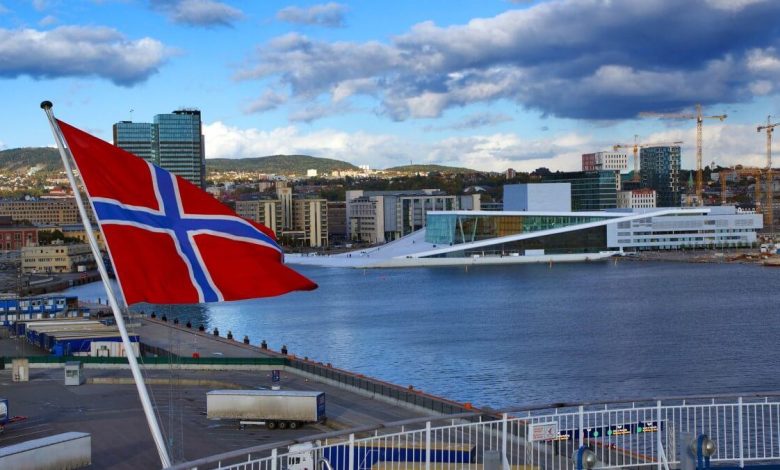Norway to Defend iGaming Monopoly Via Necessary DNS Blocking

Norway hasn’t given up on gaming monopolies. As a substitute, it’s transferring additional in the direction of isolation by announcing new legislation. Underneath this laws, Web Service Suppliers (ISPs) could be mandated to dam all iGambling web sites utilizing Area Identify System (DNS) blocking.
The Norwegian flag flying in entrance of the Oslo Opera Home. The nation is doubling down on its gaming monopoly. (Picture: Dreamstime)
Underneath the proposed laws, ISPs could be required to implement technical measures stopping customers from reaching particular web sites by way of international DNS protocols. This authorized modification comes after a interval of greater than two years because the Norwegian authorities initiated discussions on the potential for DNS blocking for unlicensed web sites.
The proposed laws specifies that if a person makes an attempt to entry a restricted web site, she or he shall be redirected. A chosen touchdown web page will seem to supply info on why entry wasn’t granted.
The modification is a part of reforms to Norway’s Playing Act and was proposed as a suggestion by the Ministry of Tradition and Equality on October 20. The cupboard swiftly permitted it that very same day.
Minister of Tradition and Equality of Norway Lubna Jaffery blamed the necessity for DNS blocking on gaming operators. She mentioned that if they’d abided by Norwegian regulation, it wouldn’t be essential to deliver ISPs into the equation.
Norway Doubles Down on Playing Monopoly
That will have been a slight dig at Kindred and, maybe, just a few different operators nonetheless focusing on the Norwegian iGaming house. After years of providing its platforms to Norway because it tried to struggle the federal government, Kindred lastly threw within the towel. It mentioned it could go away the nation in June and reportedly exited in September.
The added measure to try to maintain unlicensed playing operators out of Norway isn’t stunning. Officers renewed Norsk Rikstoto’s monopoly lower than a yr in the past, extending it for an additional decade.
Nevertheless, the choice can also be problematic, with some research displaying that playing monopolies don’t present enough participant protections.
Web Loopholes
Norway is playing on the safety of DNS blockers to retain its monopolistic gaming setting. Nevertheless, as in all types of playing, there are not any ensures.
DNS serves as an important part of the web infrastructure, performing as a translator between user-friendly domains and the numeric IP addresses related to net servers. When a person enters a website identify (e.g., www.on line casino.org) into their browser, the DNS server resolves that identify into the corresponding IP handle.
Web customers can make use of numerous strategies to bypass these DNS blocks. One normal technique is to make use of various DNS servers, akin to these offered by public DNS providers like Google’s 8.8.8.8 or Cloudflare’s 1.1.1.1.
By altering their gadget’s DNS settings to make use of these various servers as a substitute of the ISP’s default DNS, customers can generally circumvent the restrictions imposed by the ISP. This isn’t foolproof, nonetheless, and doesn’t all the time work.
Digital Non-public Networks (VPN) is one other efficient means for Web customers to bypass DNS blocks. A VPN encrypts the person’s web connection and routes it by way of a server in a unique geographic location, successfully masking the person’s IP handle and DNS requests.
This enhances on-line privateness and permits customers to entry blocked web sites by making it seem that their requests originate from a unique location with unrestricted entry. Like the usage of public DNS servers, the usage of a VPN isn’t all the time profitable. Nevertheless, its success fee is way better than its failure fee.





